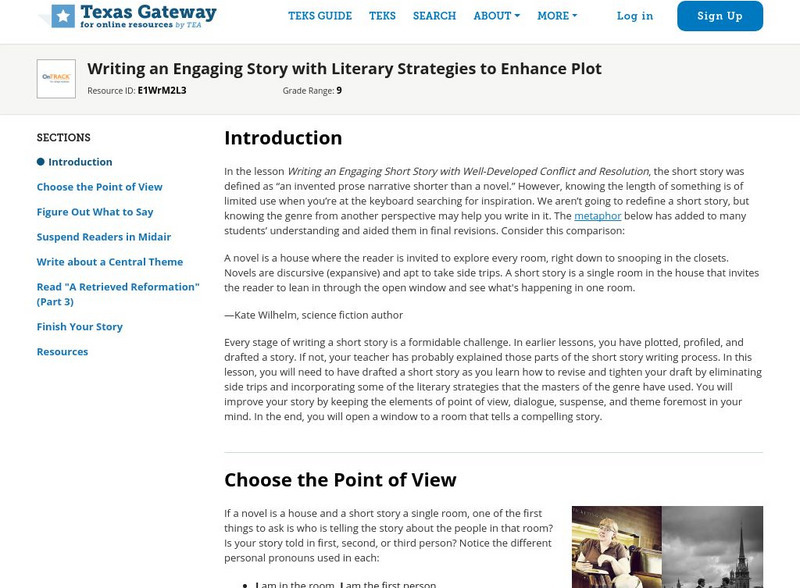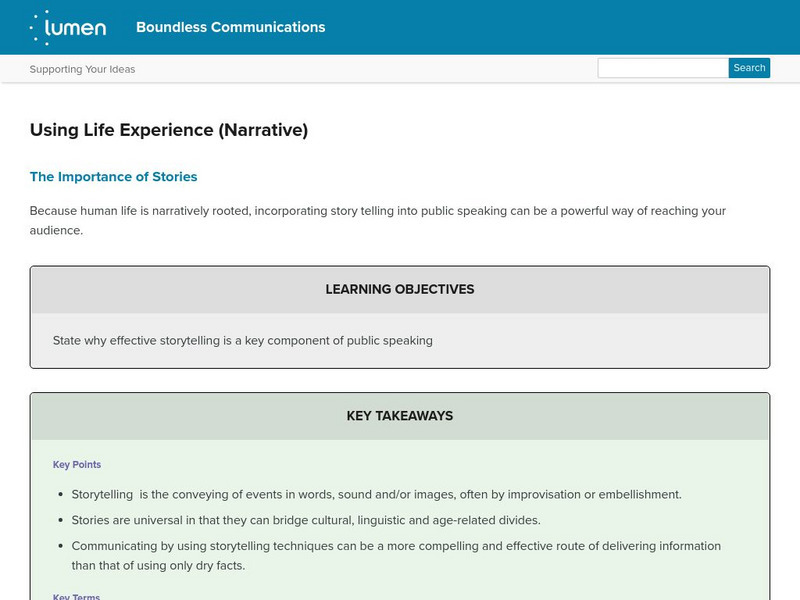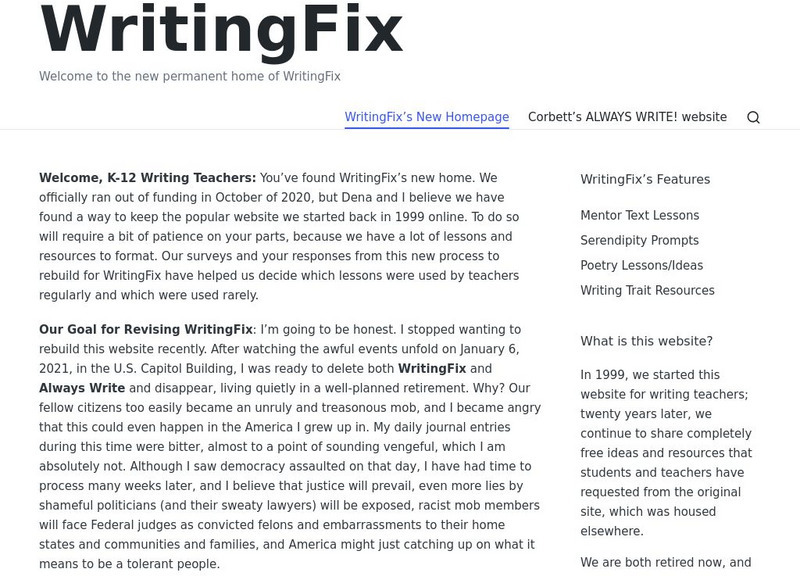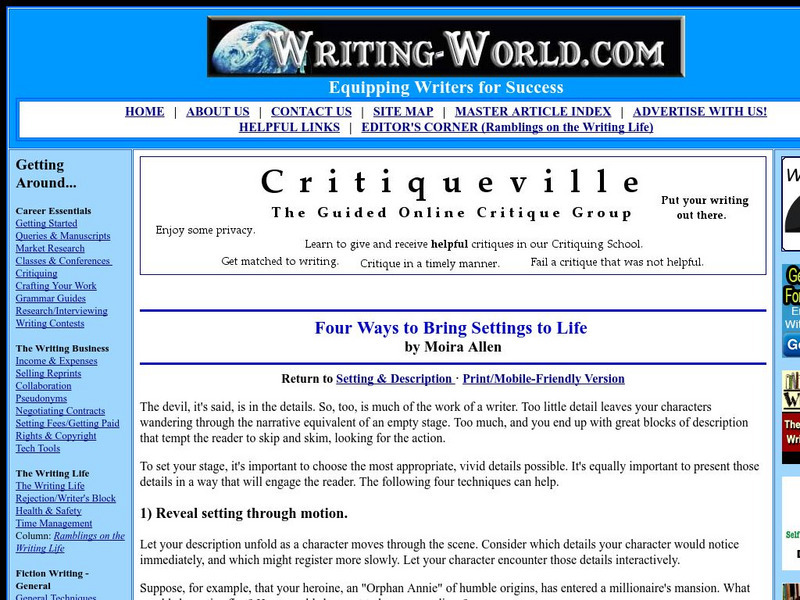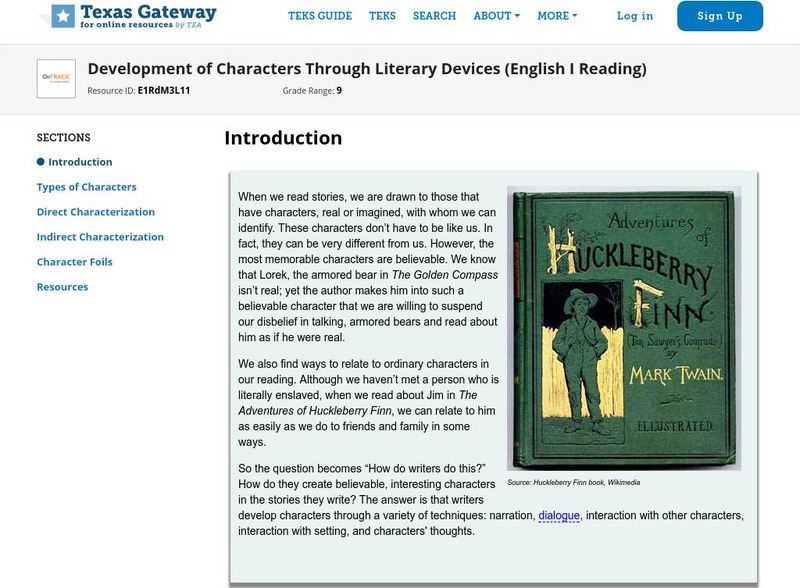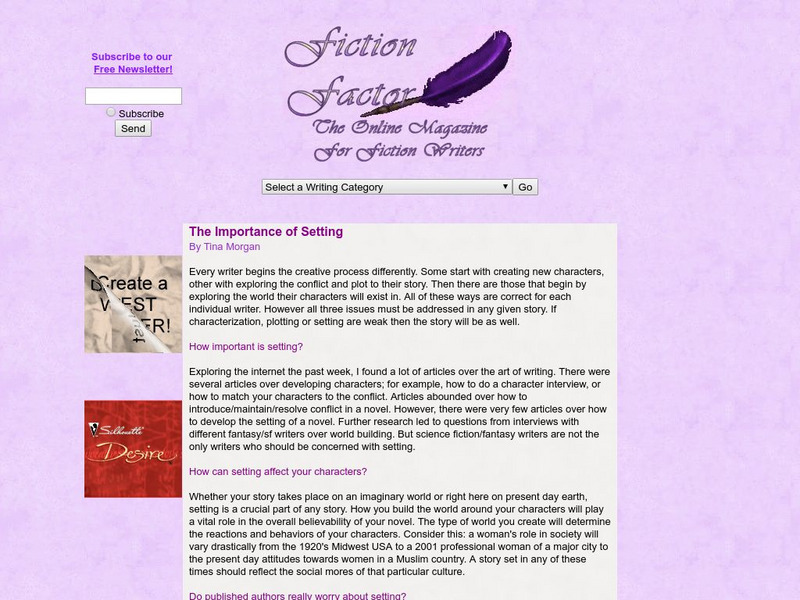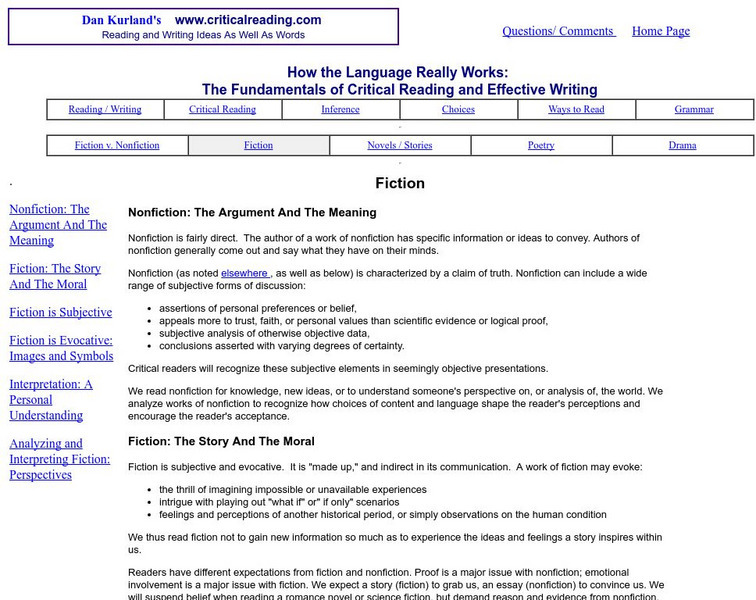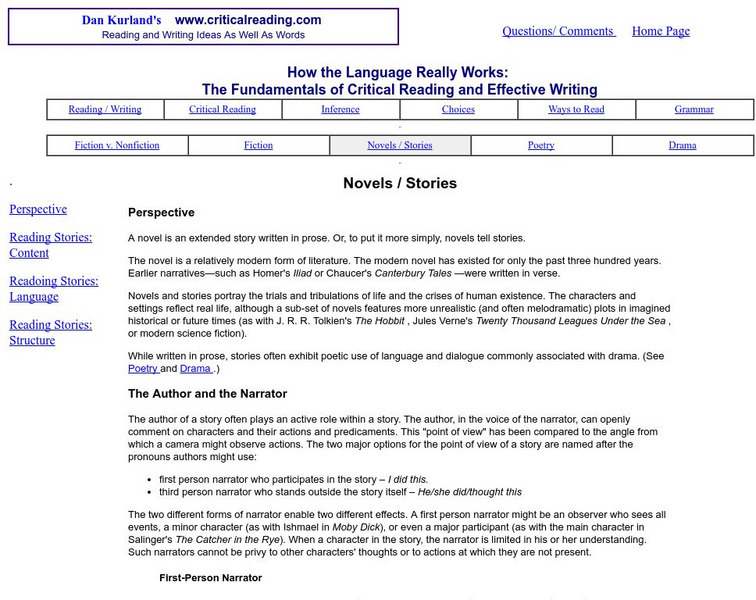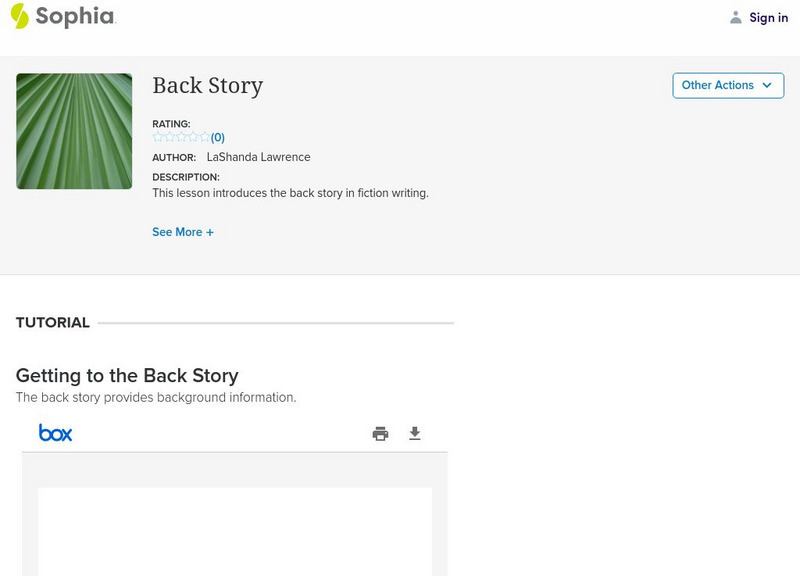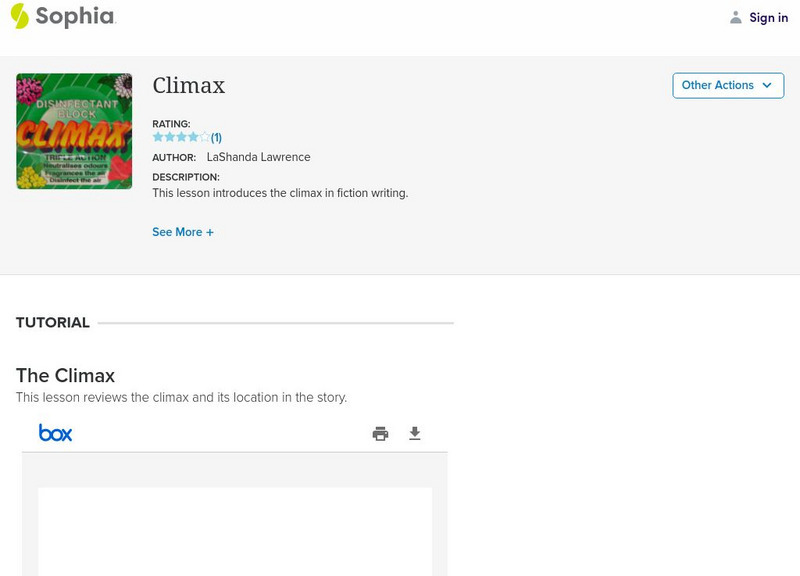Hi, what do you want to do?
Texas Education Agency
Texas Gateway: Writing Engaging Stories With Literary Strategies to Enhance Plot
Use various literary strategies and devices, including dialogue and suspense, to enhance the plot in a short story.
Lumen Learning
Lumen: Boundless Communications: Using Life Experience (Narrative)
This lesson focuses on using narratives or stories in speeches. It discusses the importance of stories, the power of storytelling, and how and when to use stories in speeches.
Lumen Learning
Lumen: Reading and Interpreting Literary Texts: How to Analyze a Short Story
This lesson focuses on analyzing a short story including all of the elements of a short story such as setting, plot and structure, and characterization.
Writing Fix
Writing Fix: Mechanical Monsters
In this lesson, students read the description of the mechanical dog from Ray Bradbury's Fahrenheit 451 and then work in groups to create and write descriptions of their own futuristic pet.
Texas Education Agency
Texas Gateway: Isolated Scenes and Plot Support (English Ii Reading)
Analyze various scenes in several works of fiction to see how those scenes affect the plot as a whole.
Texas Education Agency
Texas Gateway: Characters and Staging in Drama
[Accessible by TX Educators. Free Registration/Login Required] In this lesson, you will analyze how different playwrights characterize, or develop, their protagonists and antagonists through the dialogue and staging of their plays.
Other
Writing World: Four Ways to Bring Settings to Life
A great resource outlining four major ways to make settings appear more real and genuine in fiction. Deals with themes such as motion, experience, mood, and the senses. W.11-12.3d Sensory/precise lang narratives
Texas Education Agency
Texas Gateway: Analyze Linear Plot Developments in Literary Texts/fiction
[Accessible by TX Educators. Free Registration/Login Required] In this lesson, you will learn how to recognize conflict, analyze linear plot, and determine how the conflict is resolved.
Texas Education Agency
Texas Gateway: Characters and Staging in Drama
[Accessible by TX Educators. Free Registration/Login Required] In this lesson, you will analyze how different playwrights characterize, or develop, their protagonists and antagonists through the dialogue and staging of their plays.
Texas Education Agency
Texas Gateway: Analyze the Central Characters in Literary Text/fiction
In this lesson, you will discover some ways that writers reveal the complexity of their characters. By closely analyzing one author's characters, you'll come to see how their words, actions, and interactions with one another can shape a...
Texas Education Agency
Texas Gateway: Isolated Scenes and Plot Support
Plots have momentum or a forward motion. In this lesson, we will isolate and discuss specific plot scenes from several works of fiction. You will learn how each scene moves the plot forward toward the resolution.
Texas Education Agency
Texas Gateway: Development of Characters Through Literary Devices
This lesson focuses on how writers develop characters through a variety of techniques: narration, dialogue, interaction with other characters, interaction with setting, and character's thoughts.
Other
Fiction Factor: The Importance of Setting
An interesting article concerning the importance of setting to any piece of fiction. Gives good information about how setting affects characters and "world-building."
Other
Short Story Elements
Geared toward high school students, this site contains many notes and links on the aspects of short story, figurative language, and figures of speech.
Ted Nellen
Cyber English (By Ted Nellen): Bildungsroman
This is a glossary entry for the term "Bildungsroman" referring to characteristics of a "Coming Of Age" type story. A link to more information is provided.
Writing Fix
Writing Fix: Serendipitous Personification for Stories and Descriptions
Students will use this writing prompt generator to create a personification story or description.
Other
How the Language Works: Fiction
This article discusses the characteristics of fiction and the expectations that readers have.
Other
How the Language Really Works: Novels and Stories
This brief article explains perspective, types of narrators, and the elements of fiction.
Sophia Learning
Sophia: Back Story
This lesson introduces the back story in fiction writing. W.11-12.3c Narrative Org
Sophia Learning
Sophia: Characters and Setting
This lesson introduces the connection between characters and setting in fiction writing.
ClassFlow
Class Flow: Plot and the Most Dangerous Game
[Free Registration/Login Required] This flipchart teaches students about plot and gives examples from short story and also highlights vocabulary.
ClassFlow
Class Flow: Story Elements
[Free Registration/Login Required] This flipchart defines the elements of a story: character, setting, theme, and conflict.
Annenberg Foundation
Annenberg Learner: Literature: Constructing Plot
This site has an explanation of the elements of a plot with clear examples. Click on "What goes into plot" for more information.





